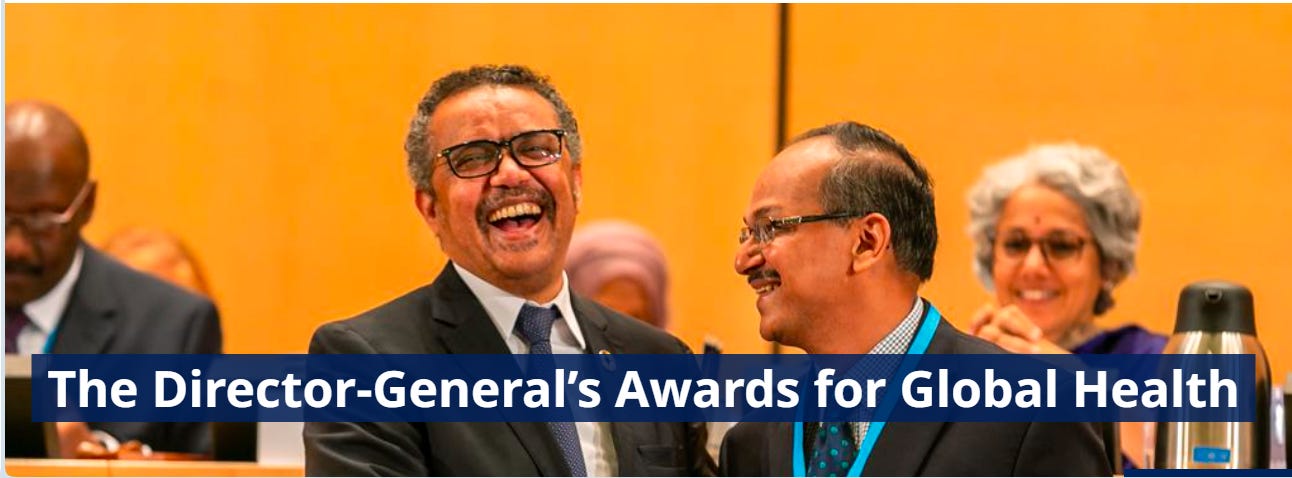WHO Chief Honors Climate, mRNA Vaccine Pioneers
WHO Director-General Tedros Adhanom Ghebreyesus presented his Award for Global Health to Barbados Prime Minister Mia Mottley for her work tackling climate change and antimicrobial resistance.
GENEVA— The head of the World Health Organization recognized leaders in climate action and the development of mRNA vaccines at the U.N. health agency's main annual meeting Sunday, writes Winston Mwale.
WHO Director-General Tedros Adhanom Ghebreyesus presented his Award for Global Health to Barbados Prime Minister Mia Mottley for her work tackling climate change and antimicrobial resistance.
He hailed Mottley's "exemplary leadership in fighting for a more equitable, just and sustainable world."
"WHO considers climate change to be the greatest health threat facing humanity. Her tireless efforts for climate action help protect the health of all peoples, now and in the future," Tedros said as he awarded Mottley on Saturday ahead of the World Health Assembly's opening.
At Sunday's ceremony, Tedros honored University of Pennsylvania scientists Katalin Karikó and Drew Weissman for their "outstanding contributions" to developing mRNA vaccines against COVID-19, calling their leadership in the field potentially "critical" for global health.
The American academics won the 2023 Nobel Prize in medicine for discoveries allowing the development of mRNA technology used in the Pfizer-BioNTech and Moderna COVID-19 vaccines.
"Professors Karikó and Weissman played a key role in alleviating the burden of COVID-19 and saved lives during the pandemic," Tedros said.
Mottley, Barbados' first female prime minister elected in 2018 and re-elected in 2022, chairs WHO's global leaders group on antimicrobial resistance and has prioritized sustainable policies amid climate change.
Karikó is a Hungarian biochemist and adjunct professor at Penn, while Weissman is a professor of vaccine research there.
The pair overcame skepticism to help forge breakthroughs allowing mRNA's therapeutic use.




